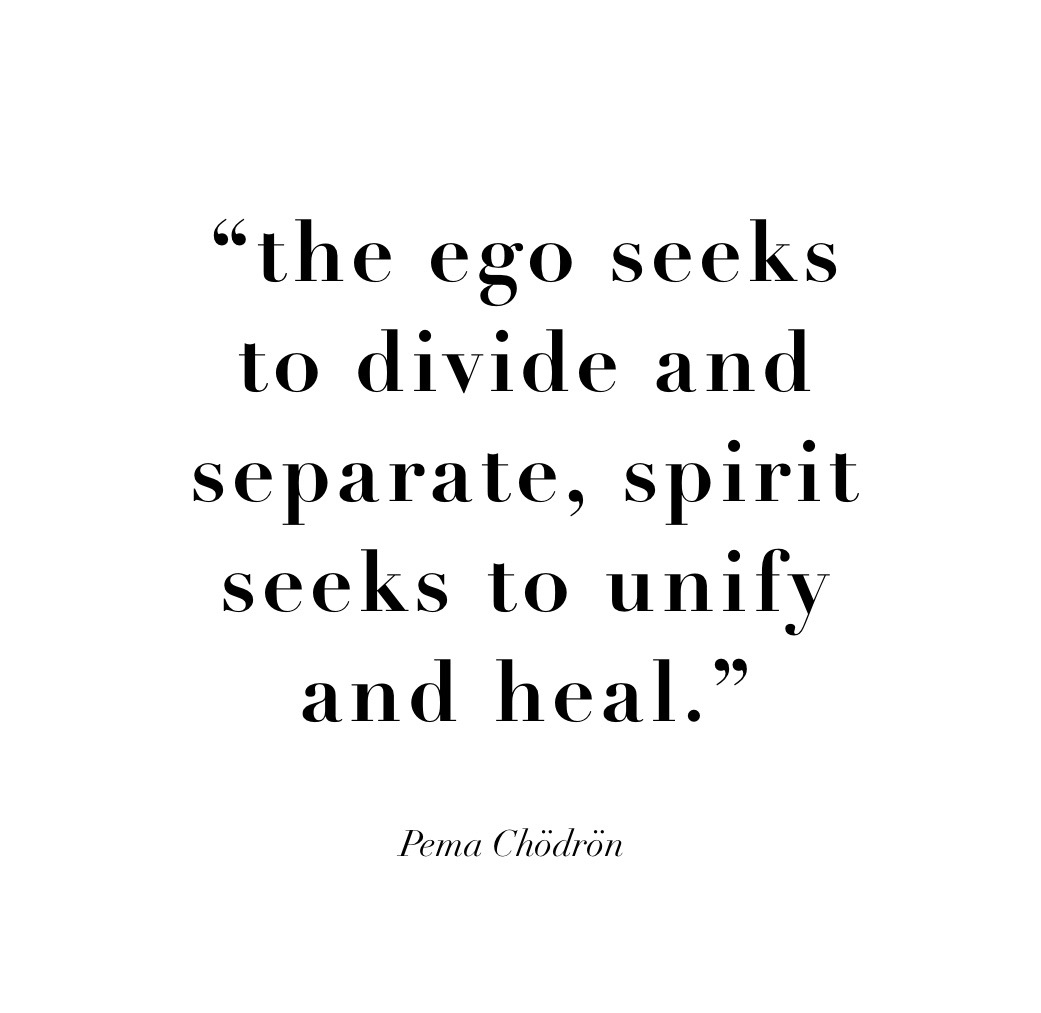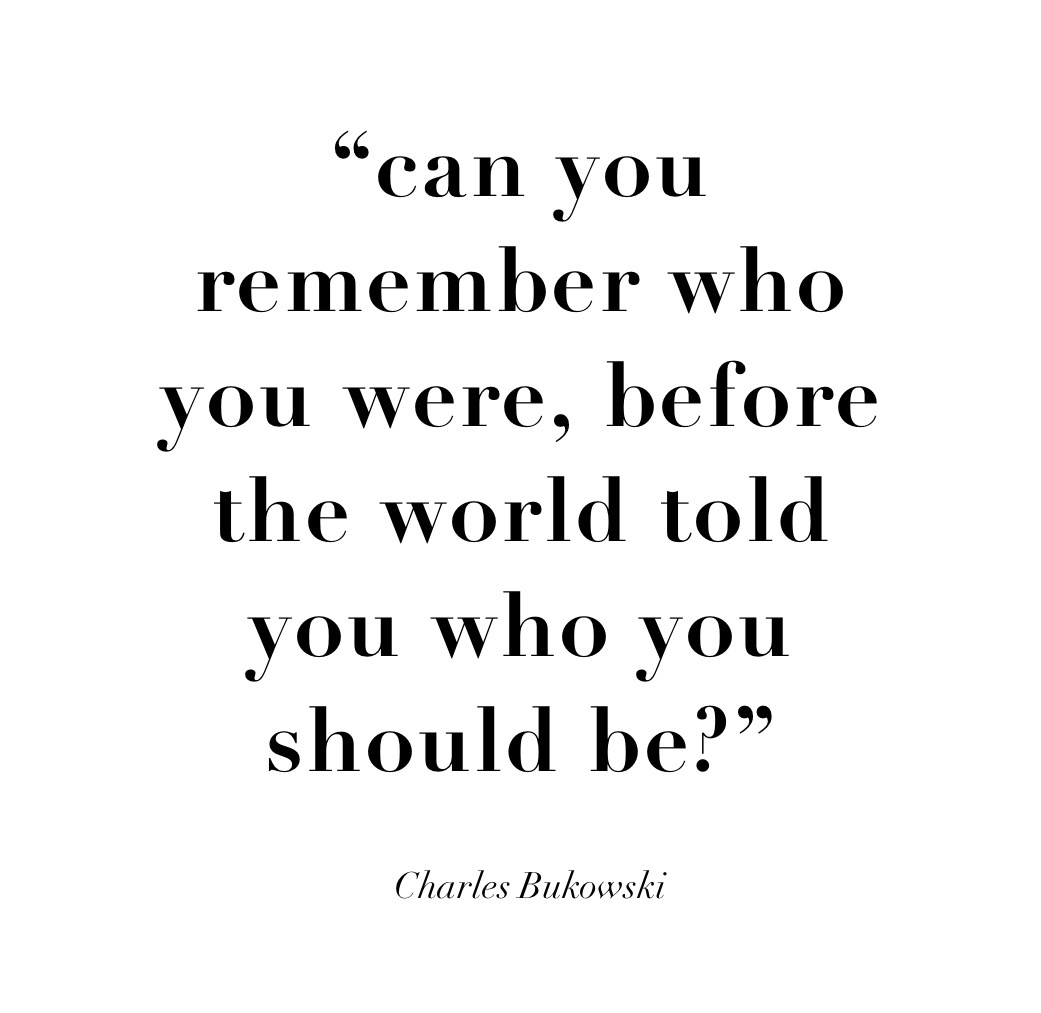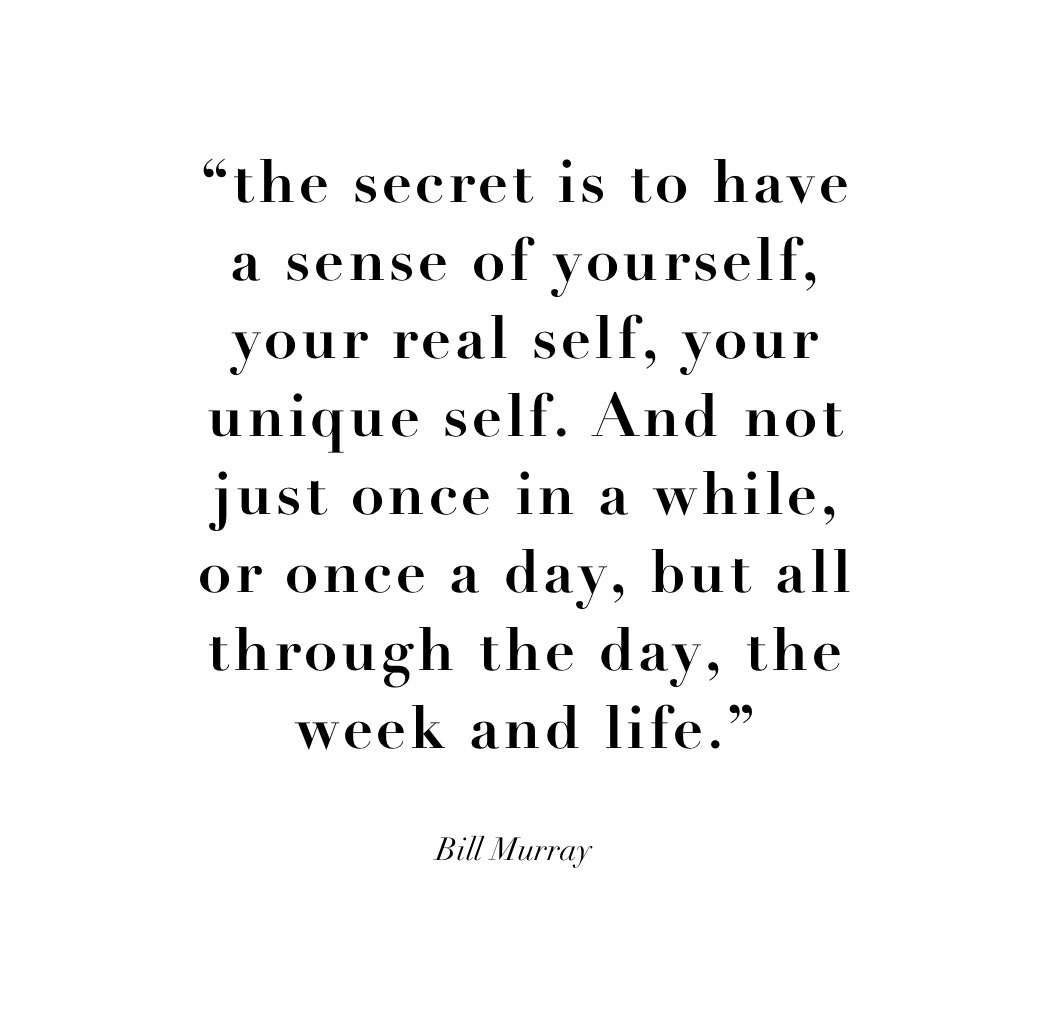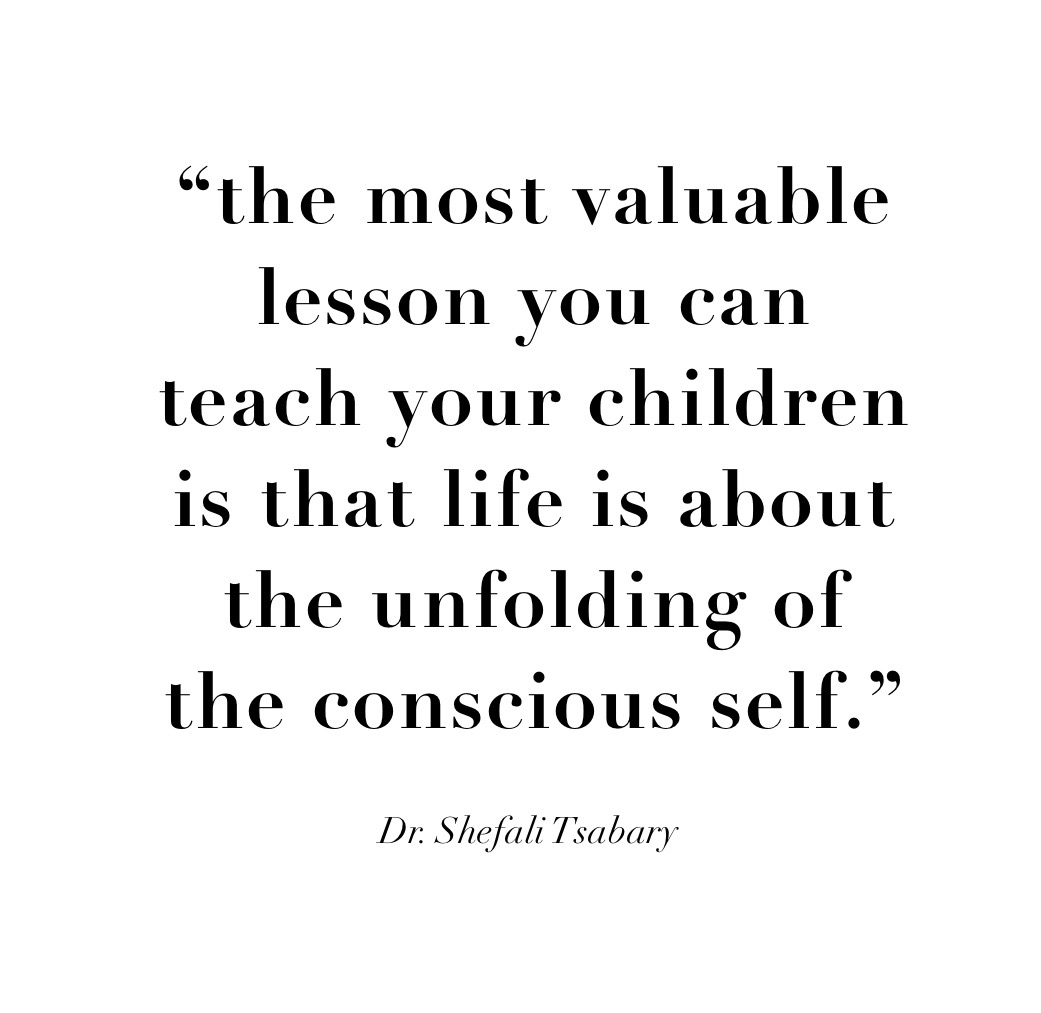
Vol. 7: Letting Go of Ego
WHAT EGO?
Brené Brown is one of my favorite people on the planet, and she calls her ego The Hustler.
The hustler says, "You have no inherent worth. You gotta work for it, baby!" He whispers, "How fast are you going to run? How high are you going to jump? How many likes do you have on that photo? How many comments on that post?"
That's the hustle.
The ego can influence or derail every aspect of our lives, and most of us don't even know the true meaning of the word nor how it affects us as human beings.
If you're a parent, someone afflicted with addiction, or both, it's even more important—in my opinion—that you understand ego and learn how to recognize it when it rears its head.
Most people think ego presents itself as arrogance, selfishness, or feelings of superiority. But it is not precisely limited to that. Ego is not always someone acting out or showing off; it is the identity our minds and conditioning have created.

Ego-based mind can dominate us; who we are as parents, friends, sons, daughters, and community members. It represents that part of ourselves that identifies with our personality, self-esteem, accomplishments, skill, and perceived weaknesses; everything that encompasses false self.
Our thinking has created our world as it is now. Whenever we label something as good or bad or make a preference in our mind, it's due to the coming into being of egoic structures or self-interests.
The ego longs to feel important; it makes judgments, creates enemies, and feeds on conflict. The very existence of the ego creates duality—a split between you and me, self and other, man and nature—when the truth is, we all share the exact source of spiritual energy.
I don't believe that the solution is to fight for peace or conquer nature but to recognize the truth. So, when in doubt, ask yourself:
What role does the ego play in this situation?
Failure coming in any form, whether losing your job, relapsing on drugs or alcohol if you're in recovery, or falling short in your relationships, is the crux of the ego.
But, if we can see our ego for what it is rather than try to obliterate or reject it, the inner, higher self will triumph.
Every time you recognize your ego, you diminish its power. You begin to see that you are not your past, your social status, not the shape of your nose, or your bank account balance. None of those things have any bearing on your true self.

UNCOVERING AUTHENTICITY
Your consciousness, or soul, is your authentic self; you before the world kicked down your door. Eckhart Tolle believes that the ego cannot exist in consciousness.
But, I love how the late Dr. Wayne Dyer put it, and I'm paraphrasing here, "It's like the first nine months of your life in the womb, you trusted God (the divine) with everything. You didn't think about whether or not you were getting a nose or ten toes and ten fingers; you just trusted that everything would be okay. But, you pop out, and the people surrounding you say, 'Nice work, God. Thank you, but we'll take over from here.' Then, you develop an ego and begin Edging God Out."
Catch that acronym at the end? Clever.
Now, before we dig any further into dismantling our ego in hopes of uncovering our true self, we must understand that the ego is not all bad, and the false self, if you will, is not wrong. Think of it as your persona, name, job, race, and sexual orientation, all necessary to create the egoic structure but not necessarily bad.
Imagine these typical answers we all give when someone asks us who we are, are the raw materials we all fall through to get to our true selves.
However, in the wake of the scarcity culture that most of us have watched evolve over the past decade—primarily because of social media—false self and ego manifest themselves (both on and off the world wide web) in negative ways. You can usually recognize it whenever you take offense to something.
For example:
Recently, I was at a new and very crowded park with my six-year-old son when a group of four boys a few years his senior appeared out of nowhere and began wrestling him to the ground. Naturally, my first instinct was to shout profane utterances entirely inappropriate for the setting. But, instead, I bit my tongue, literally.
Now, I did run to aid my boy and inquire why such an attack took place in the first place. And, I'm sure the look on my face and the slap of my clenched fist making forceful contact with my open palm got my point across just as well as if I'd screamed, "Get your hands off my kid before I punch your asshole faces!!"
None of us are perfect twenty-four hours a day. Not your pastor, your shaman, your guru, or your mother. It's essentially a matter of pausing, identifying the ego, then letting go of the false self.

Ask yourself, what part of me was offended? Nine times out of ten, it's not your true self that's pissed off. Why? The true self cannot be offended. It's too grounded, too connected to the divine, too genuine to take offense.
Stepping into your authentic, higher self requires a great deal of humility. However, that doesn't mean anything outside the self has to change; what changes is the conscious, intelligent, inner energy, which is free from conditioned patterns and becomes available to be directed by the soul.
You can only become aware of the soul's purpose once you possess the ability to watch the conditioned self in its endless pursuits and let them go.
Unlike the ego, the higher self isn't illusory and is free from suffering. The way I look at it, we either go mad or awaken and become free.
Now, I'm not saying that once we accept reality, we cease action or become pacifists. Still, when we are free to act without being driven by unconscious motives, we can work in alignment with our truth, the full force of our inner energy behind us.
However, it's important to remember that spiritual freedom is an inner condition that requires continual cultivation and tuning.
The mark of true self-mastery is to feel, see and behave positively, even if the external reality appears negative. So every moment, I must decide how I'm going to feel, then react based on preference rather than the circumstances of my environment.
CONSCIOUS PARENTING
By now, it should be clear to you, dear reader, that when I say conscious, I'm not referring to the opposite of comatose—being unconscious—but rather the condition of the mind.
The unconscious mind is the part that is inaccessible to the conscious mind but which affects behavior and emotions. The unconscious is the repository of intuitive skills, the source of stored memories, fantasy, and dreams that proceed without our innate awareness.
Much learning, especially recognition of complex patterns, takes place outside of conscious awareness. Similarly, many elements that go into judgments and decision-making are processed outside of awareness. Much of human motivation and interpersonal attraction also take shape beyond conscious awareness.
To raise conscious children, one has to become an intended parent. Raising aware kids is no ordinary task. But, according to Dr. Shefali Tsabary, author of The Conscious Parent, the process is straightforward in that all you need to do is drop all the thoughts, the conditioning, and the rigid beliefs that have accumulated in your mind over the years and take life as is.
Children are great teachers in this aspect because they always take life as is. Dr. Tsabary calls parenting a "spiritual journey for both the parent and the child." The parent is in no way superior to the child in this journey.

Being a conscious parent does not mean becoming a permissive parent, although mindful parenting is often mistaken as such. Instead, disciplining is delivered consciously with an authentic desire to help the child.
I must remember that parenting is a relationship, not a one-way transmission. Therefore, instead of forcing my behaviors on my son, I focus on my language, expectations, and self-regulation.
Children learn their parents' behaviors and values, such as kindness, honesty, and tolerance. In addition, conscious parenting calls for patience, understanding, and awareness and involves being intentional about your parenting decisions.
This approach requires parents to engage in self-reflection and mindfulness daily—something anyone can benefit from, whether a parent or not.
Spiritual practices such as meditation help me to connect to my higher self. After all, the greatest minds in human history have often pointed to levels of thought beyond the limited self-structure, ego.
May we all bring forth the divine from within each one of us and apply it to everything we do today, for today is all any of us have.
Post a comment